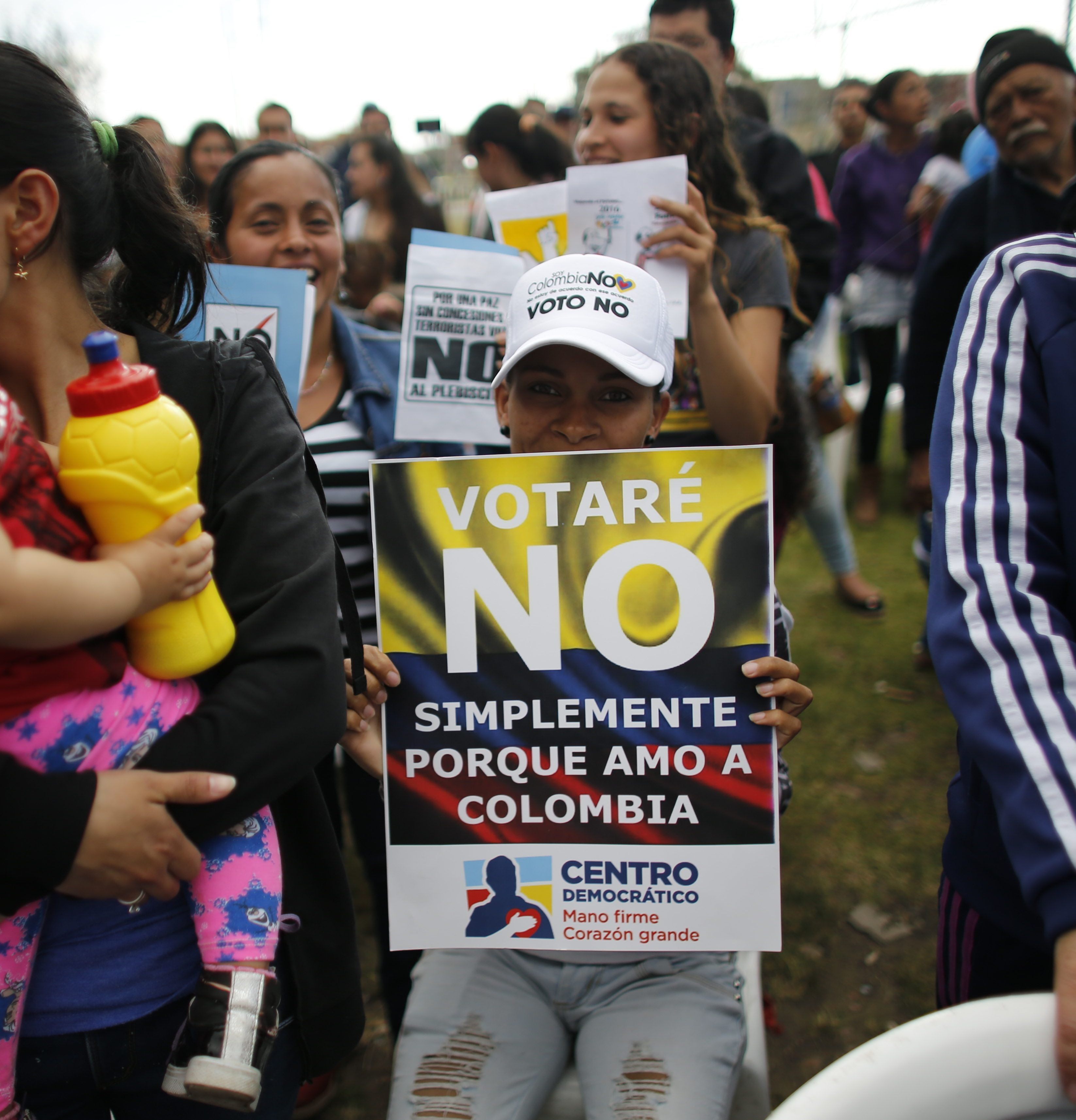Colombians reject peace deal to end 52-year FARC rebel war
Colombian voters have narrowly rejected a peace deal to end a 52-year conflict between the state and communist FARC rebels, in a shock blow to the country’s government. The “no” camp in the nation’s referendum won by 50.21% to 49.78%, reversing the trend of earlier opinion polls. Turnout was low at just over 37%. Authorities said heavy rain caused some disruption to voting as Hurricane Matthew passed over the Caribbean. The accord, which had been negotiated in Havana, Cuba, called for the FARC (Revolutionary Armed Forces of Colombia) to disarm in six months and convert into a political group with seats in Colombia’s Congress.
The majority has said ‘No’. I will not give in, and I will continue to seek peace to the last day of my term.
President Juan Manuel Santos conceded defeat in the vote, but vowed to continue peace efforts
Opponents of the pact believed the deal was too lenient on FARC rebels by allowing them to re-enter society, form a political party and escape jail sentences. Bogota engineer Alejandro Jaramillo, 35, said: “I voted no. I don’t want to teach my children that everything can be forgiven.” The FARC launched its guerrilla war on the government in 1964, after a peasant uprising that was crushed by the army. The ideological and territorial conflict drew in several leftist rebel groups, right-wing paramilitaries and drug gangs.
The FARC deeply deplores that the destructive power of those who sow hate has influenced opinion.
FARC leader Rodrigo Londono, alias Timoleon “Timochenko” Jimenez, vowed the group was committed to continuing peace efforts

World